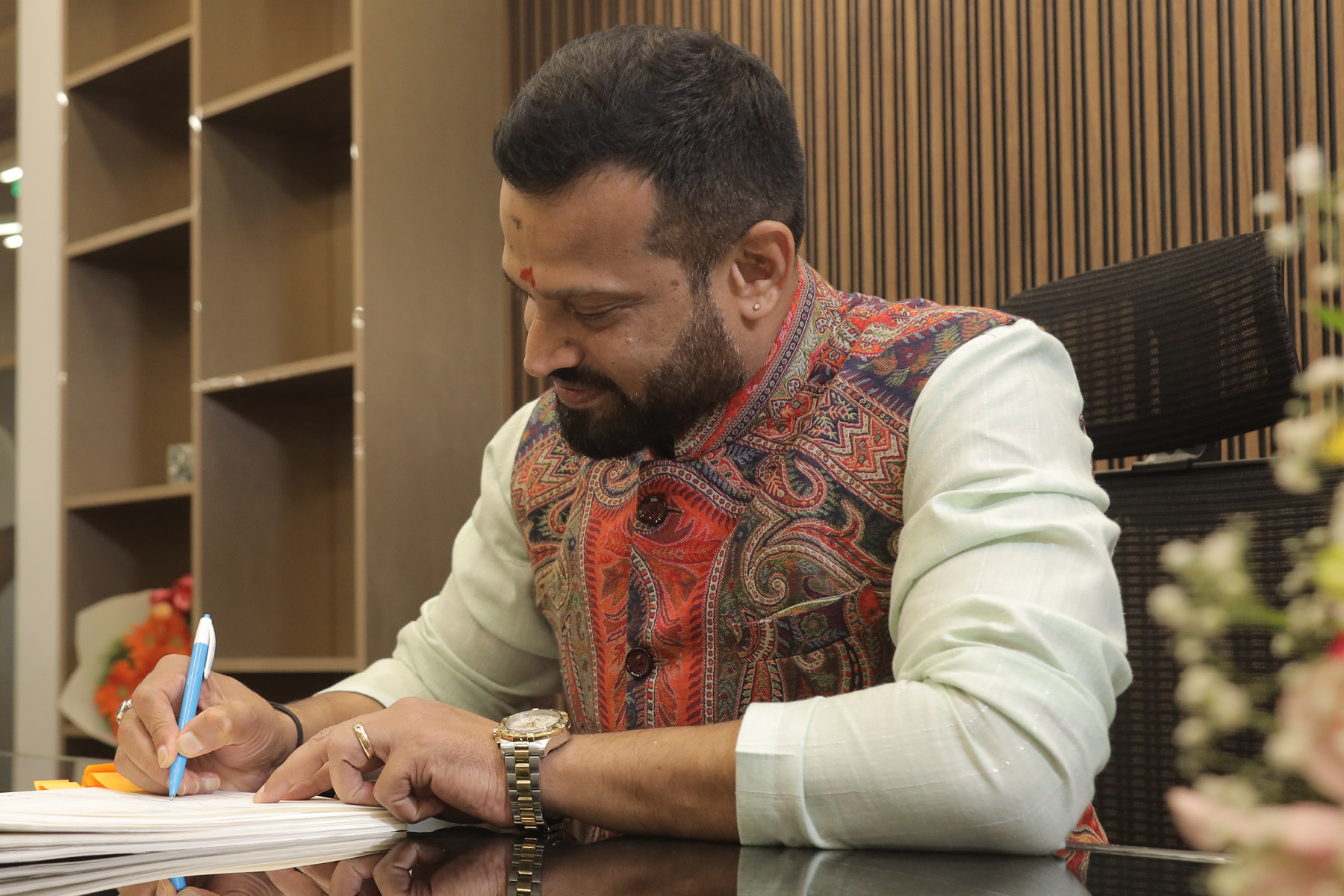Nation-builders at work: Manoj Kumar Krishnappa
As India zooms toward a future of cutting-edge transport, Hitachi Rail STS India Whole-Time Director Manoj Kumar Krishnappa reveals the thrills and challenges involved in achieving a string of historic firsts.
It was 2021 and the office erupted in celebration as Hitachi Rail STS India was awarded two of the nation’s most prestigious projects – the Udhampur-Srinagar-Baramula Rail Link (USBRL) and the Kolkata Underwater Metro. But amid the excitement, Whole-Time Director Manoj Kumar Krishnappa felt a weight of responsibility settling in.
"We were given the unbelievable challenge of completing two of India’s critical flagship projects," he recalls.
Each project came with its own complex demands, from advanced engineering to overcoming the most demanding terrains. So when Prime Minister Narendra Modi inaugurated the USBRL and the Kolkata Underwater Metro network earlier in 2024, it marked a moment of immense relief and pride for the entire Hitachi India team.
"Seeing the honorable Prime Minister launch these projects was a defining moment for me and everyone in the organization who had worked tirelessly to make this happen," Krishnappa remembers.
A series of firsts
"In Jammu and Kashmir, all railway lines featuring stations with automated signaling have been delivered by Hitachi," Krishnappa explains.
"This spans an impressive 258 kilometers and includes 24 stations. Beyond the geopolitical hurdles, we faced the formidable task of navigating the region’s rugged terrain, which demanded a highly skilled workforce."
And that’s not all. "The two stations in between Chenab Bridge are powered by Hitachi Rail STS – MLK II System, ensuring the safety of train movements," he adds with pride.
The Kolkata Metro project was a completely different story. "This is India’s first underwater metro system," Krishnappa says. "A couple of stations in the metro line are built at 100 meters below the Hooghly River. That was again a challenge with its own set of issues, but the Hitachi team delivered this, too."

"We are proud to be working hand-in-hand in nation-building."
Delivering these two projects was a turning point for Hitachi. "We are proud to be working hand-in-hand in nation-building," Krishnappa says.
As these two milestone projects were successfully executed, Hitachi secured its next major undertaking – the Chennai Metro.
"The Chennai Metro, spanning 120 kilometers under a single contract, is being implemented in a phased approach, making it one of our largest projects globally," he says. "Our goal is to complete the first phase by 2025, with a commitment to ensuring the highest safety standards throughout the system."
Advertisement
Krishnappa also highlights Hitachi’s pivotal role in India’s bullet train project, announced in 2017.
"We recently discussed fast-tracking the project with the Ministry of Railways to begin operations by 2026," he says. "Hitachi will be responsible for executing the signaling and rolling stock packages, making this a significant milestone as this is the country’s first bullet train project."
Hitachi has consistently led the way in introducing innovative technology to Indian Railways. "We’ve pioneered innovations like electronic interlocking, train protection and warning systems, autoblock and centralized traffic control," Krishnappa explains.
A green approach
Despite a continuous array of projects, Hitachi remains committed to its global initiative for achieving net zero emissions.
"Many of our products, such as the electronic interlocking systems used in the railway stations for automation, are designed with green energy in mind," Krishnappa says. "This greatly reduces the carbon footprint by streamlining train movements at stations."
Additionally, the Intelligent Asset Management System plays a crucial role in carbon reduction for the Indian Railways. "In India, Hitachi is leading the way in green energy," he says. "We are targeting net zero emissions across our product lines by 2050."
Krishnappa adds that apart from the sustainability efforts, Hitachi has also undertaken to improve safety standards in the rail industry. "Safety is the focus of this year’s budget because of some accidents that took place recently," he notes. "We are looking at remote diagnostics that enhance safety features."
"In India, Hitachi is leading the way in green energy."
Hitachi’s commitment extends beyond simply winning and executing projects. "We ensure that end-to-end solutions are achieved, and we continue to support systems throughout their entire life cycle," he explains.
To achieve carbon neutrality and ensure the highest safety standards, Krishnappa emphasizes the importance of collaboration with both employees and long-standing suppliers.
"Most of our suppliers have partnered with us for over 27 years," he says. "They trust working with us and we have the same confidence in them."
Key partners such as Hitachi Vantara and Belden India play a vital role in supporting Hitachi Rail’s carbon-neutral initiatives while consistently meeting client timelines and expectations. Their dedicated efforts ensure that the company maintains its commitments to clients and the country.
"Our vision for India is to enhance the transportation ecosystem by delivering top-quality solutions at the lowest cost," Krishnappa says. "We are committed to achieving this with the utmost focus on safety and mitigating our carbon footprint."